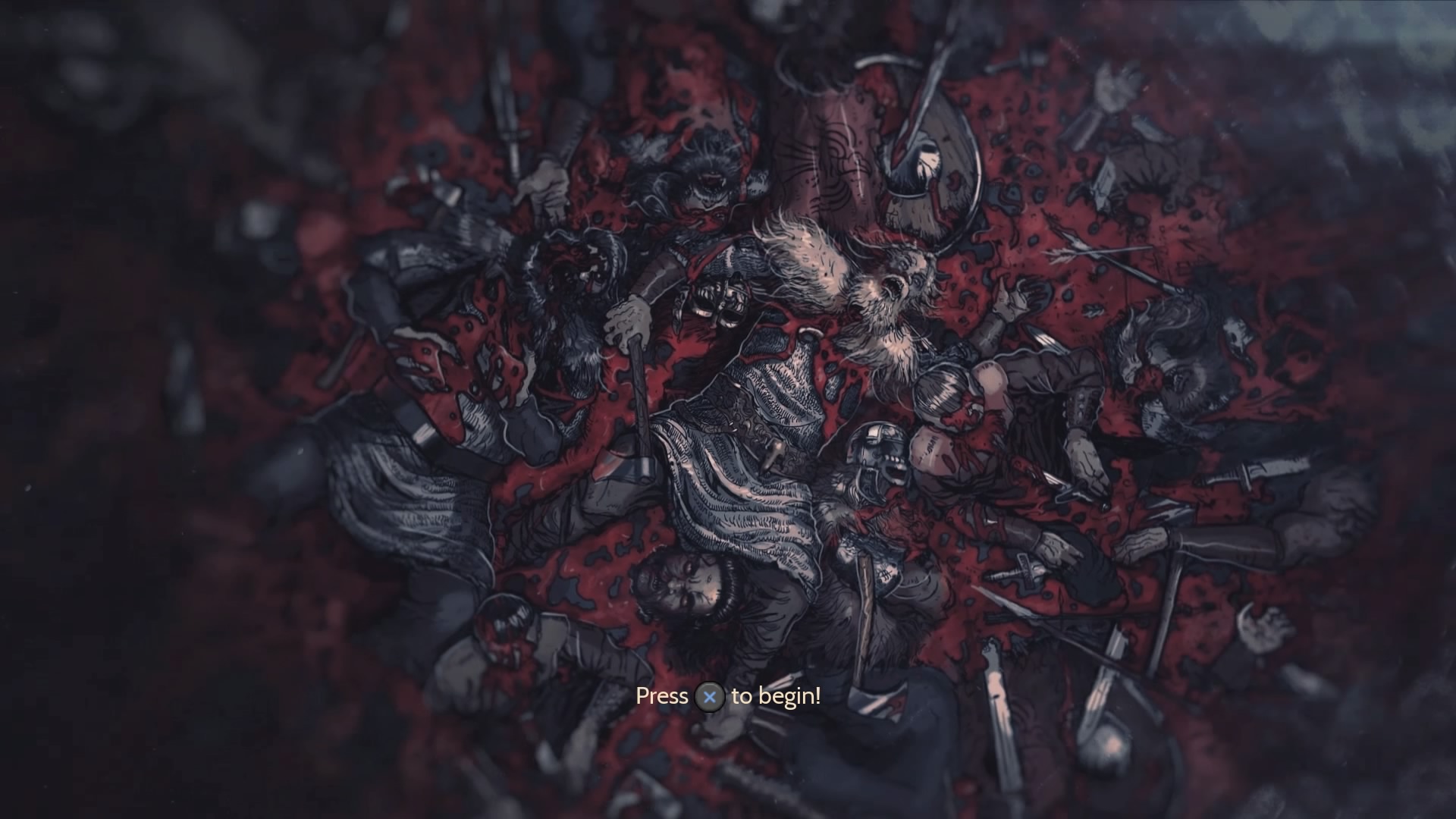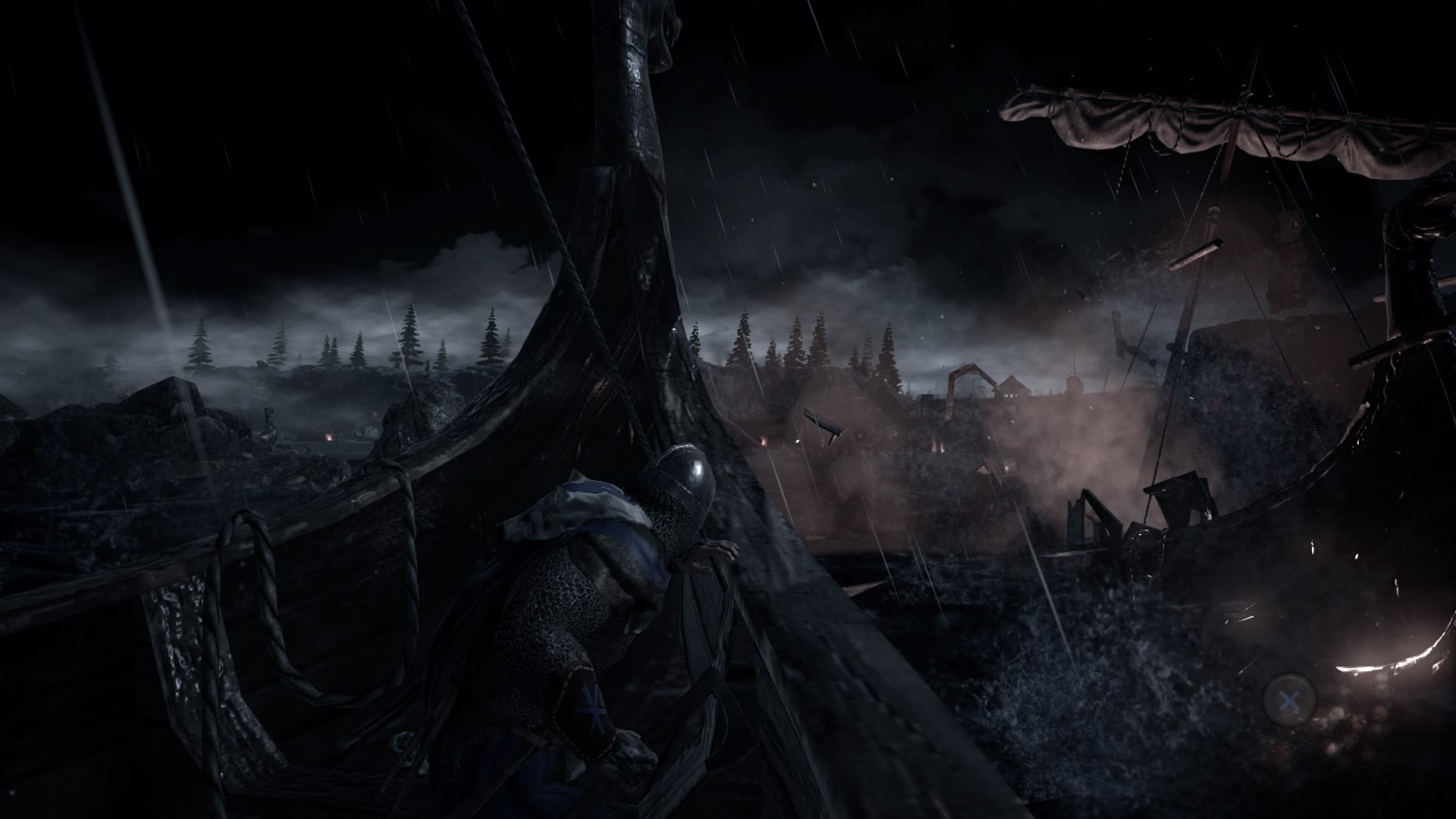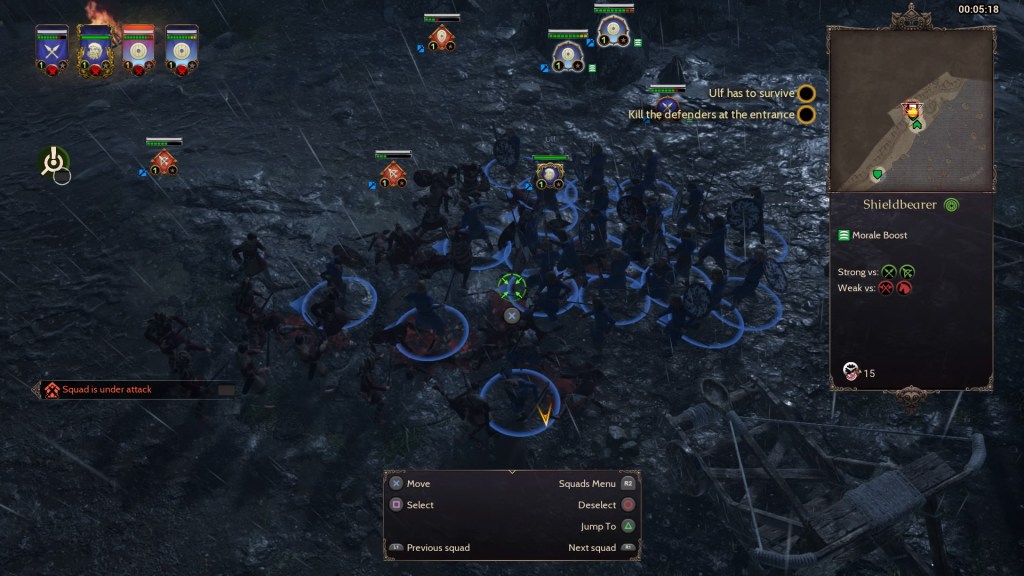There was once a time in history where the gaming industry scoffed at the idea of the RTS genre on console. I mean, how the hell were developers supposed to simulate the hot-keyed madness of real time strategy with a couple of control sticks and a hodgepodge of buttons and triggers? Eventually the likes of Command and Conquer and Halo Wars were able to bring competent RTS facsimiles to the living room, but these releases were still few and far between. Since then, only a handful of titles have even attempted the feat, so when the recently released Ancestors Legacy hit the PS4, I was curious to see if they too had what it took to make the jump from PC to console. Have they managed to stick the landing, or is the inclusion of control sticks just part of the problem?
Making the Transition
Though the series is new to the PlayStation audience, Ancestors Legacy actually graced PC last year. Ever since that time, developer Destructive Creations has been hard at work streamlining an admittedly robust experience into something that is consumable without the aid of a keyboard and mouse. These sorts of optimizations are a tall order to say the least, but it certainly appears that they’re on the right track. Plus, if you are a fan of historically grounded battle recreations, this will certainly check all of the right boxes.
Set during the heyday of Vikings, the game covers the warring factions that were coming to blows during this volatile era in history. The four playable factions include Vikings, Teutons, Anglo-Saxons, or Slavs. Each group has at least one dedicated campaign, focusing around the conflicts that defined them. Granted, it doesn’t take much research to realize that there were several liberties being taken in the name of constructing a compelling narrative, but considering that the “raping” portion of “raping and pillaging” is also being put to the side, this can certainly be forgiven.
The core combat is very much of the squad-centric variety, somewhat in the same vein as PC classic Company of Heroes. Regiments can be grouped together with other squads to move collectively or be moved individually. Over the course of battle the number of troops in any squad can both wane and grow, depending upon if more bodies can be recruited from the surrounding settlements. In response to getting your ass surprisingly handed to you in a paper sack, there’s an option to retreat, which is mapped to a singular button the controller. Hitting this command sends all selected units scampering back to their nearest base of operations, with their collective tails between their legs.
If the settlement has the proper resources available, squads can replenish their units upon reaching the base. This is why it’s key to make sure that each group never entirely depletes their soldier count. Once the squad is completely gone, they are perma-dead. All it takes is a single survivor to potentially rebuild an entire regiment, so keeping a keen eye on the body count can be a key to early success.

Bringing the Pain
There comes a point during each campaign where caution is thrown to the wind, in favor of unleashing all different manners of hell on the opposition. This is where the effective use of the different unit types becomes essential. Everything boils down to close, middle, and long-range combatants. Each faction has their own equivalents to these core character archetypes, so once you’ve grasped the rock-paper-scissors mechanics, switching between factions becomes a breeze. Other factors come into play as well such as a unit’s mobility or shield strength, but again, these are just slight permutations on the same core formula.
It’s paramount to understand how to effectively use differing units in combat, because they all have both strong suits and substantial deficiencies. Archers are not the type of combatants to be positioning at the frontlines of conflict, as they will be torn to ribbons by close-range units before they can even unsheathe their quiver. Best positioned well behind the frontlines of any battle, it’s still important to make sure they are close enough to clear their own team’s offensive troops. Failure to do so will result in arrows falling well short of their desired targets, subsequently raining down hell on their own squad mates in an unfortunate case of friendly fire.
These sorts of give-and-take scenarios take simple trial-and-error to fully grasp. There’s no way to completely prevent silly mistakes from being made while learning a new faction’s finer points. Thankfully there’s a very generous checkpoint system in place, which will actively help protect the player from themselves, so to speak. I can’t even begin to estimate the number of save points that bailed my over-aggressive ass out of serious jams over the course of Ancestors Legacy’s meaty forty-plus hour campaign. Yes, you read that right. The game features over forty hours of single-player action, stretched across more than thirty missions.

Losing the Battle
As nice as it was to be rescued by the autosave, there was nothing that felt better than out thinking the AI. In stark contrast to many RTS titles that I’ve played recently, the computer-controlled factions tended to behave more realistically than I would’ve anticipated. That said, when you find a way to keep an enemy’s forces occupied on one front, while simultaneously sneaking around the proverbial back door and flanking them into oblivion, it’s so damn gratifying. Part of the reason it was so rewarding was because I tended to be more on the receiving end of this scenario than the aggressor, but enough about my RTS deficiencies.
Speaking of leaving something to be desired, there appears to be quite a few bugs that are in desperate need of squashing. In damn near every gameplay session I experienced some odd quirk that completely pulled me out of the action. The issues ranged in severity between low-impact events like the sound completely dropping out or the HUD disappearing entirely, without any ability to bring it back. On the opposite end of the spectrum I also encountered whole combat encounters where I lost complete control of all on-screen units. Another time I was treated to a sketchy camera that kept shaking from side-to-side like it was being operated by someone literally sprinting with a camera on their shoulder. In the later case it made me so seasick that I had step away from the PC. Once again, checkpoints came to the rescue because in order to resolve any of these pesky problems a complete restart of the application was required.
Additionally, when trying to micromanage several groups of troops I found myself desperately swapping back and forth between units, in order to fully take advantage of fighting battles on multiple fronts. An unfortunate side effect of being confined to the PS4 controller is quite a bit of potential disorientation. While I understand the fundamental difficulties that the developers were up against, I couldn’t help but think that several games have done a better job of making you feel like you were truly in control of every combatant. It isn’t terrible by any stretch of the imagination, but there was just something intangible missing.
If you’re looking for a beefy console RTS experience that’s inspired by real events and oozing violence out of every bloody orifice, then look no further than Ancestors Legacy. It may not be the perfect experience, but it’s shockingly solid, especially when you consider the design hurdles that the development team must have been facing. This is the perfect entry-point for anyone who’s been curious about real time strategy, when armed with only a Dualshock.
Ancestors Legacy review code provided by publisher. Reviewed on PS4. For more information on scoring, please read our Review Policy.
-
The campaign is massive
-
Every gory detail of the battlefield is obscenely well rendered
-
Nothing feels better than out-thinking the AI
-
Glitches can derail the entire experience
-
Dualshock controls leave something to be desired
-
Some of the history is fudged in favor of delivering a better narrative




